Why should a psychiatrist talk about exercise, which is related to physical health? Shouldn’t they be talking about their own field of mental health?
Well, the answer to that intriguing question was given by our special guest, Dr Nischol Raval, a renowned Consultant Psychiatrist and Psychotherapist, from Sahyadri Hospital, Pune. He conducted an online session on June 14th 2023.
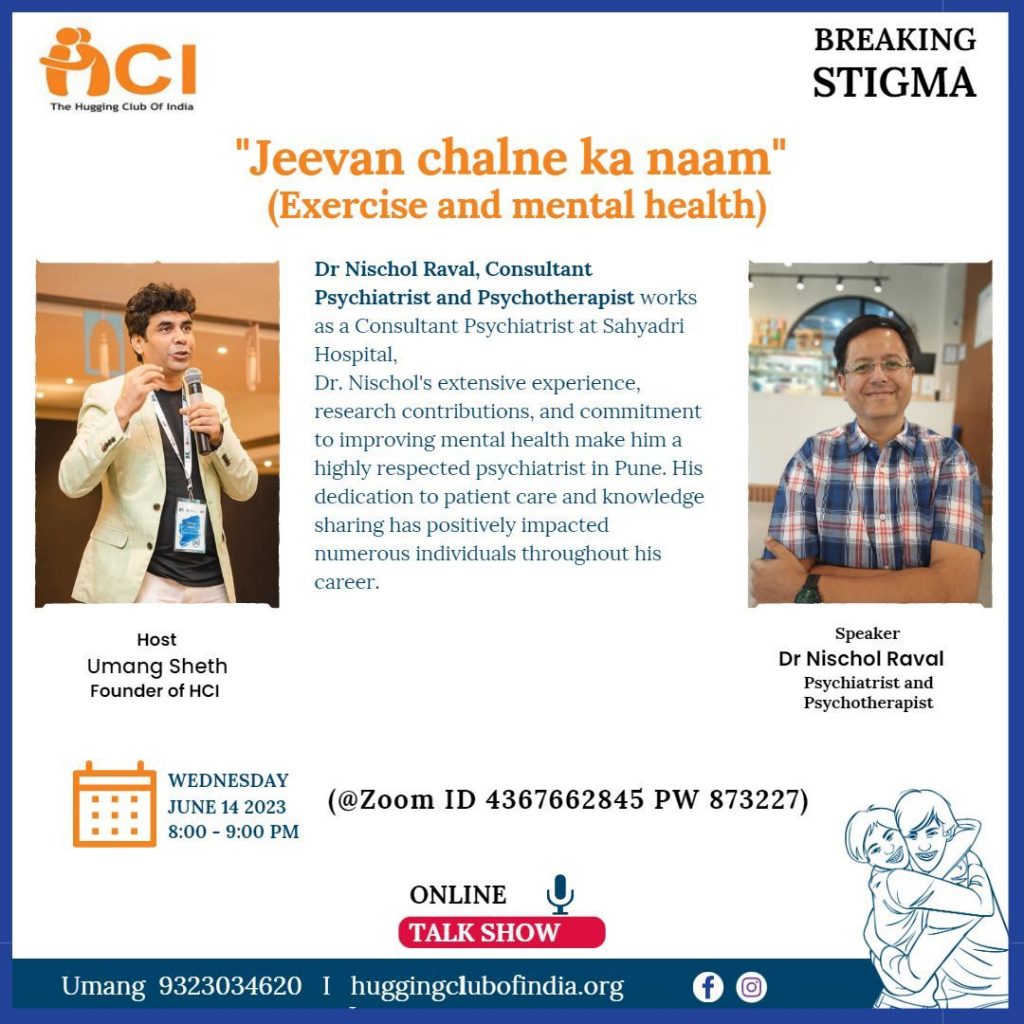
Dr Raval says that our mind and body are deeply connected. If one is affected, it will affect the other. There is sufficient medical literature showing evidence that exercise is beneficial for mental health. It reduces anxiety, depression, negative mood, improves self-esteem and cognitive functions. It is also beneficial for patients dealing with post traumatic stress disorder (PTSD), schizophrenia and dementia. However, exercise does not get the kind of importance that it should in treatment options.
Exercise also reduces craving and severity of withdrawal in substance use disorders and is also associated with increased abstinence rate.
At least 9 weeks of exercise is required for significant biological benefits to appear. Exercise and physical activity affects our immune system, physiology and psychology positively.

Psychological effects of exercise:
– Distraction from negative thoughts and ruminations – ‘mental timeout’
– Increase self-esteem and self efficacy
– Social outlet
– Helps in building resilience
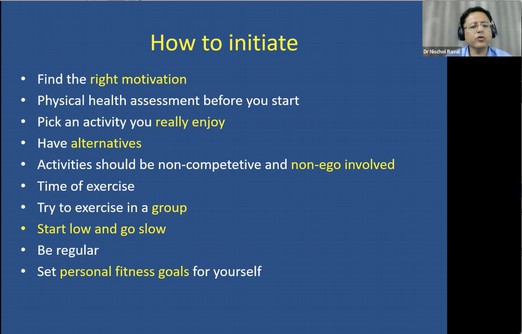
Negative effects of exercise when done in excess:
– Excessive training can lead to repeated infections due to reduced immunity
– Distressing outcomes when associated with eating disorders
– Exercise induced injury in dependent and exercise obsessive people
– Exercise addiction and withdrawal symptoms
– Negative self and body image associated with compulsive exercise
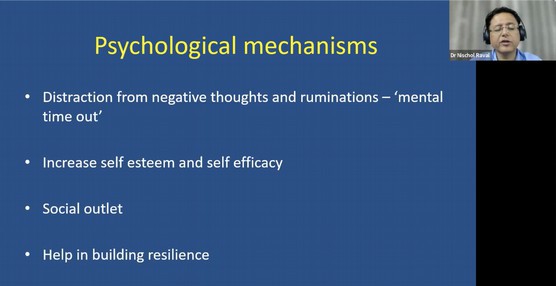
How to initiate exercise:
– Find the right motivation
– Physical health assessment before you start
– Pick an activity you really enjoy
– Have alternatives (swimming, walking, running, weight lifting, etc)
– Activities should be non-competitive and non-ego involved
– Time of exercise (morning or evening, depending on personal preference)
– Try to exercise in a group (to motivate each other and also to socialise)
– Start low and go slow (“it’s not a race!”)
– Be regular
– Set personal fitness goals for yourself
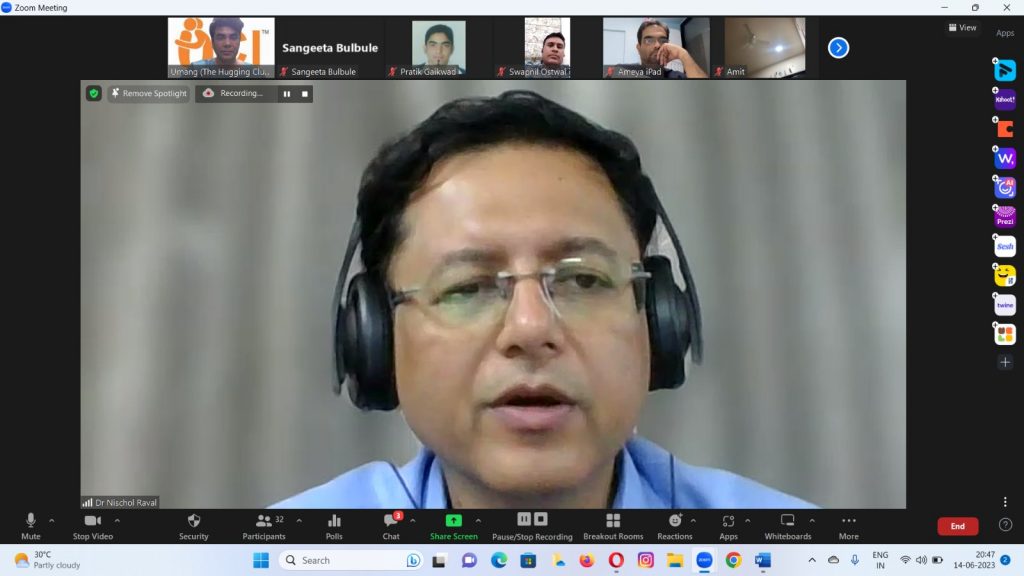
Highlights of the Q & A Session
1. Apart from exercise, what can I do to reduce stress?
– Avoid junk food/ fast food, eat home-made food
– Regular sleep
– Progressive muscle relaxation technique
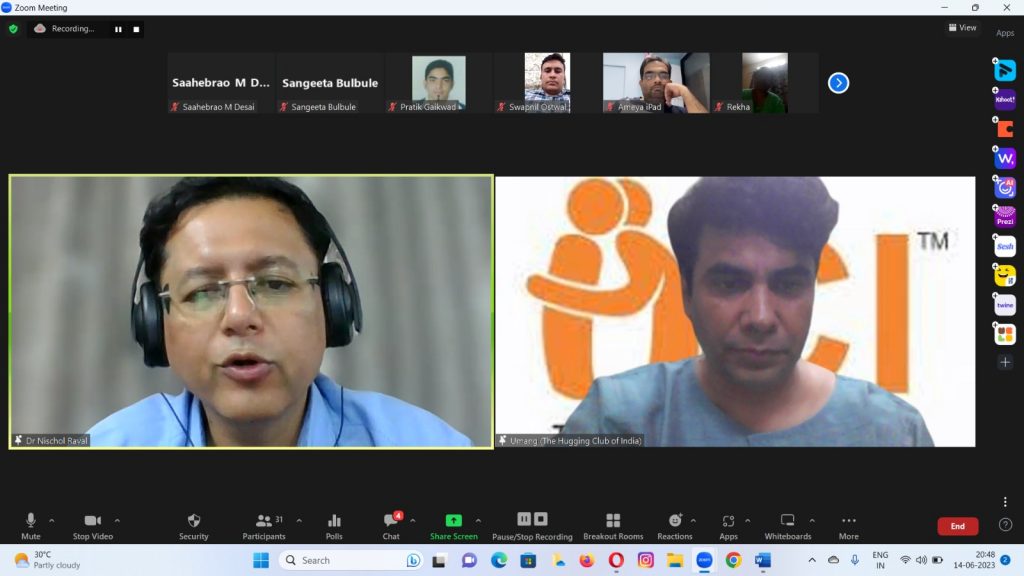
2. I sleep regularly and exercise for 2 hours daily. But I still feel stressed out. What can I do?
40-45 minutes of exercise is sufficient for health benefits. Excessive exercise also induces stress hormones in body. Reduce exercise gradually. Try to alternate between different exercises and take one day off in a week from exercise.
3. I feel sleepy after doing exercise. Is it okay to sleep after a workout?
No issue in taking a nap (15 to 20 minutes) if your body is tired. Listen to your body.

4. How to control emotional eating/ eating junk food?
Exercise can also reduce the urge for emotional eating. The urge for emotional eating comes because our brain needs a dopamine kick for feeling good. So go for a brisk walk when you feel that urge to eat junk food. This will also release dopamine in the body. So you are replacing food with exercise to give the same stimulation to the brain.
It was an educative and eye-opening session where we learned that therapy and medication are not the only tools we have to deal with mental health issues. Exercise is like the third leg of a tripod on which the balance of our mind stands and it is an essential component of the triad.
– Written by Amit Rai
– Compiled by Amol More
– Edited and uploaded by Mahrukh
–
